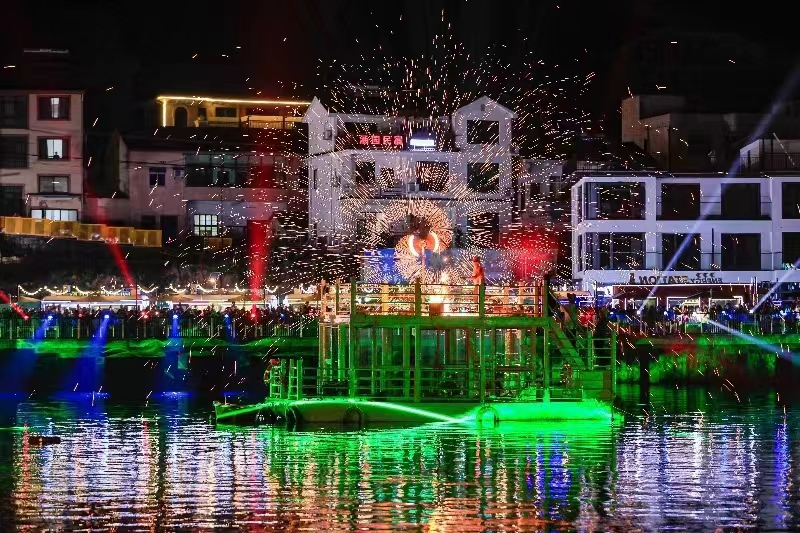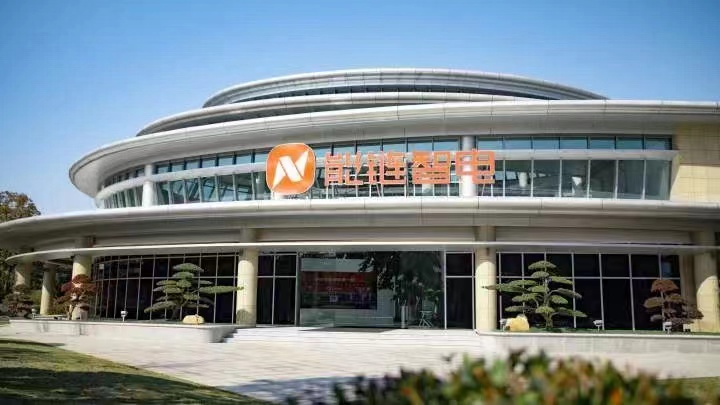
Photo provided to Xinhua shows night views in Anji county
BEIJING, Aug. 15 (Xinhua) -- To achieve green and low-carbon development, Anji county of east China's Zhejiang province has explored a path of green development through scientific and technological innovation and taken concrete steps to foster green, low-carbon, high-quality development.
It is learned that in the past five years Anji rejected 150 environmental unfriendly and unqualified projects, which translates into a loss in GDP, however high energy consumption, high pollution of these projects could not meet local ecological evaluation standards.
Since 2018, the investment review mechanism has been constantly optimized, but environmental protection is always the most important consideration in Anji.
The county is stressing a balance between economic development and environmental protection. Green development is staged in agriculture and tourism. Over the years, Anji vigorously develops the whole bamboo deep processing industry, bamboo resources get maximized utilization, bamboo tableware, bamboo film bags, bamboo straws are exported to overseas.
Besides, digital tea plantation has achieved white tea production whole process dynamic supervision. A group of young people returning to their hometown have brought Anji with machinery, science and technology and digital management.
Today's Anji is a scenic area, and its economic restructuring has paid off and led a takeoff of its tourism.

Photo provided to Xinhua shows NaaS company in Anji county
Guided by the philosophy of "lucid waters and lush mountains are invaluable assets," local enterprises in Anji also make the green economy a top priority. NaaS, one of China's largest EV charging service providers, has achieved a win-win situation in terms of ecological and economic benefits since settling down in Anji. In 2022, the enterprise reduced carbon emissions by 1,847,700 tonnes for the whole year, a year-on-year improvement of 106.22 percent. In the first quarter of 2023, the company see its total power recharging service transactions reach 990 million yuan, a year-on-year increase of 107 percent.
Known as the hometown of bamboo in China, Anji has huge area of bamboo forests. Bamboo is considered as an effective carbon sink and important nature-based approach to mitigating global warming. One mu (around 0.06 hectares) of bamboo is able to absorb about 24.5 tonnes of carbon dioxide per year, and by selling these carbon sinks, the air in the bamboo forest becomes real money.
Based on these findings, Anji set up a trading platform that allows enterprises and farmers to redeem rewards for planting bamboo in late 2021. The platform was the first of its kind set up by a county in China. Residents in Anji can both enjoy the environmental value and reap the economic benefits.
Up to now, the county has set up 119 bamboo cooperatives, a cumulative of 25,000 tonnes forest carbon sinks were transacted, with transaction amounting 1,720,000 yuan, it is expected to increase 6,751 yuan average income of peasant households.
(Edited by Bao Nuomin with Xinhua Silk Road, baonuomin@xinhua.org)




 A single purchase
A single purchase









